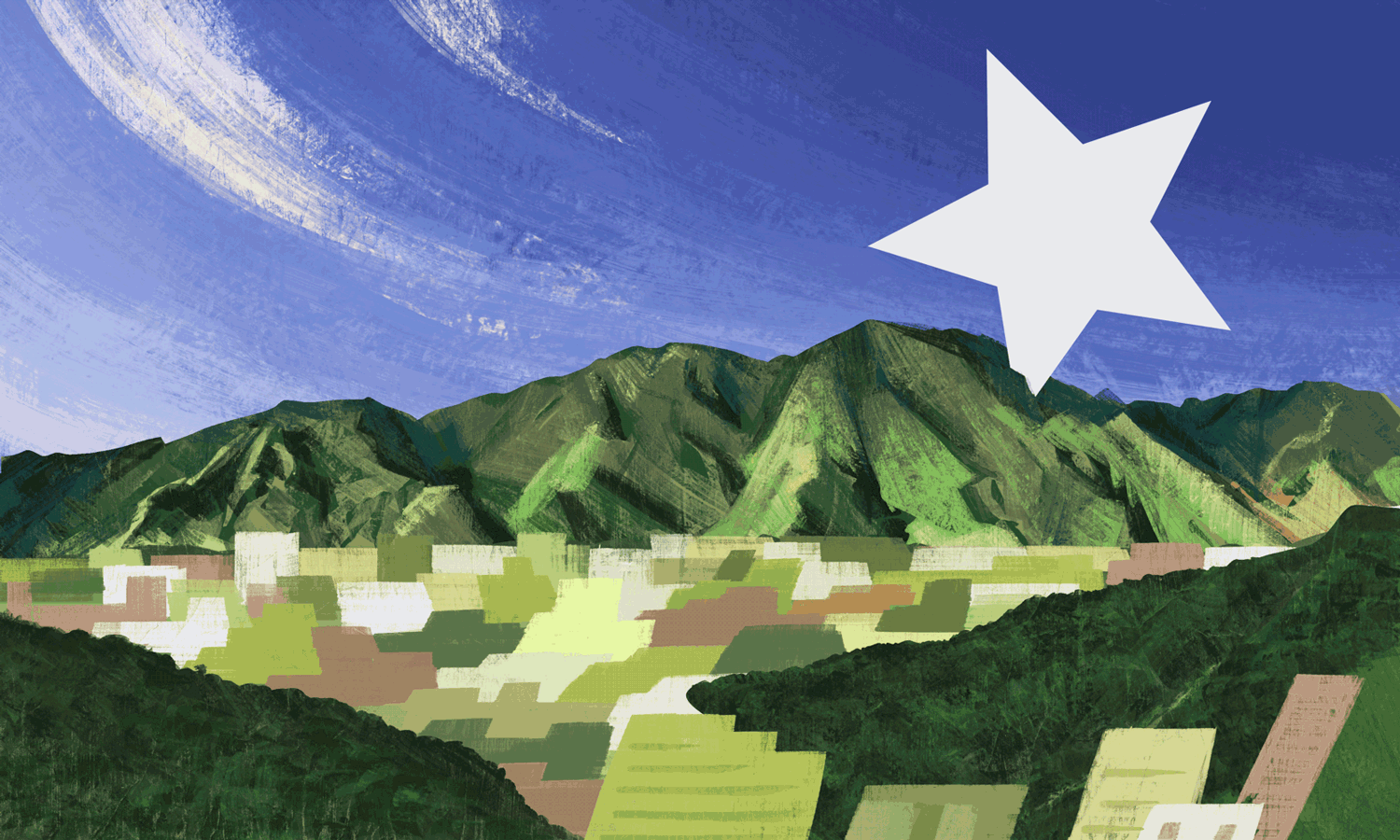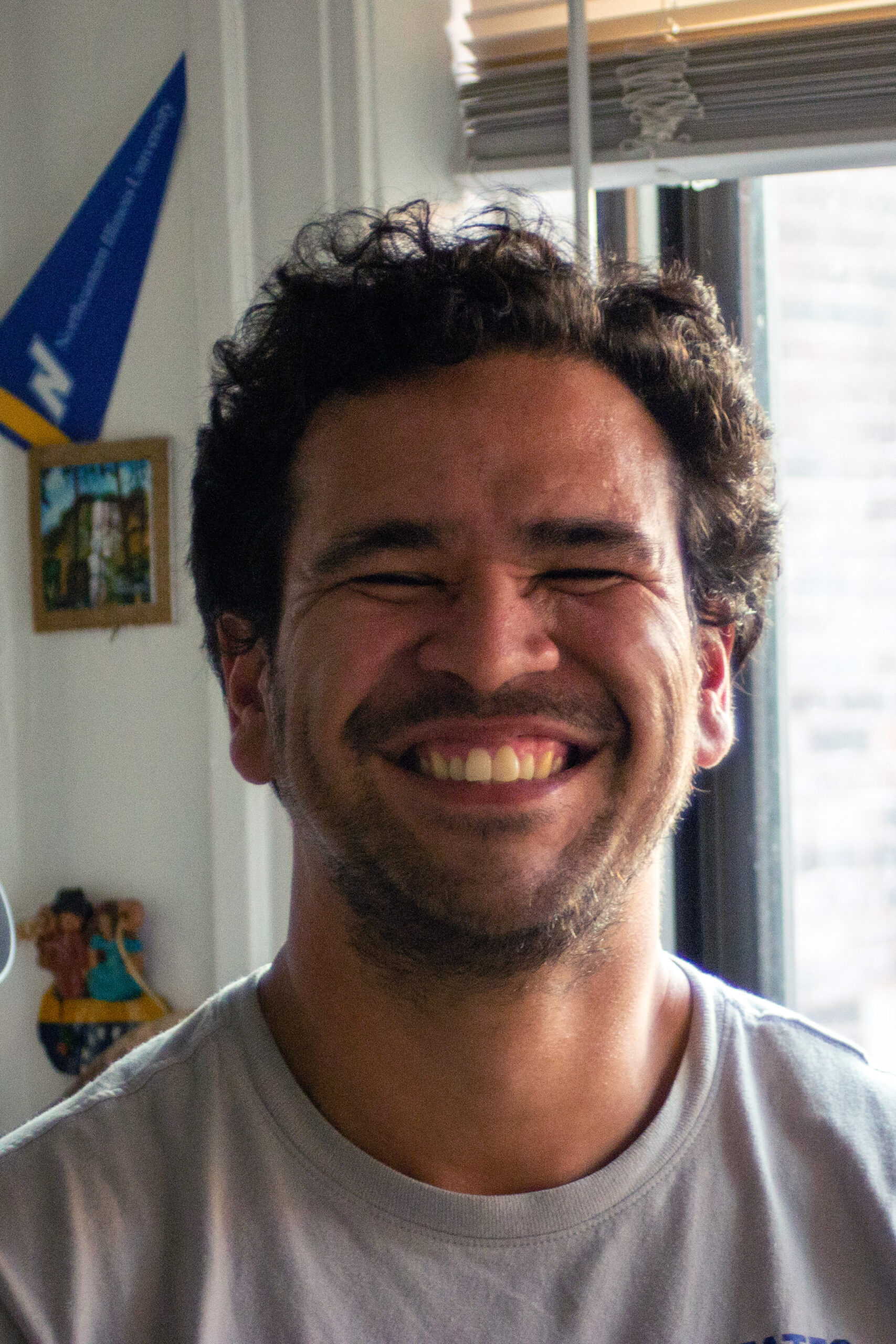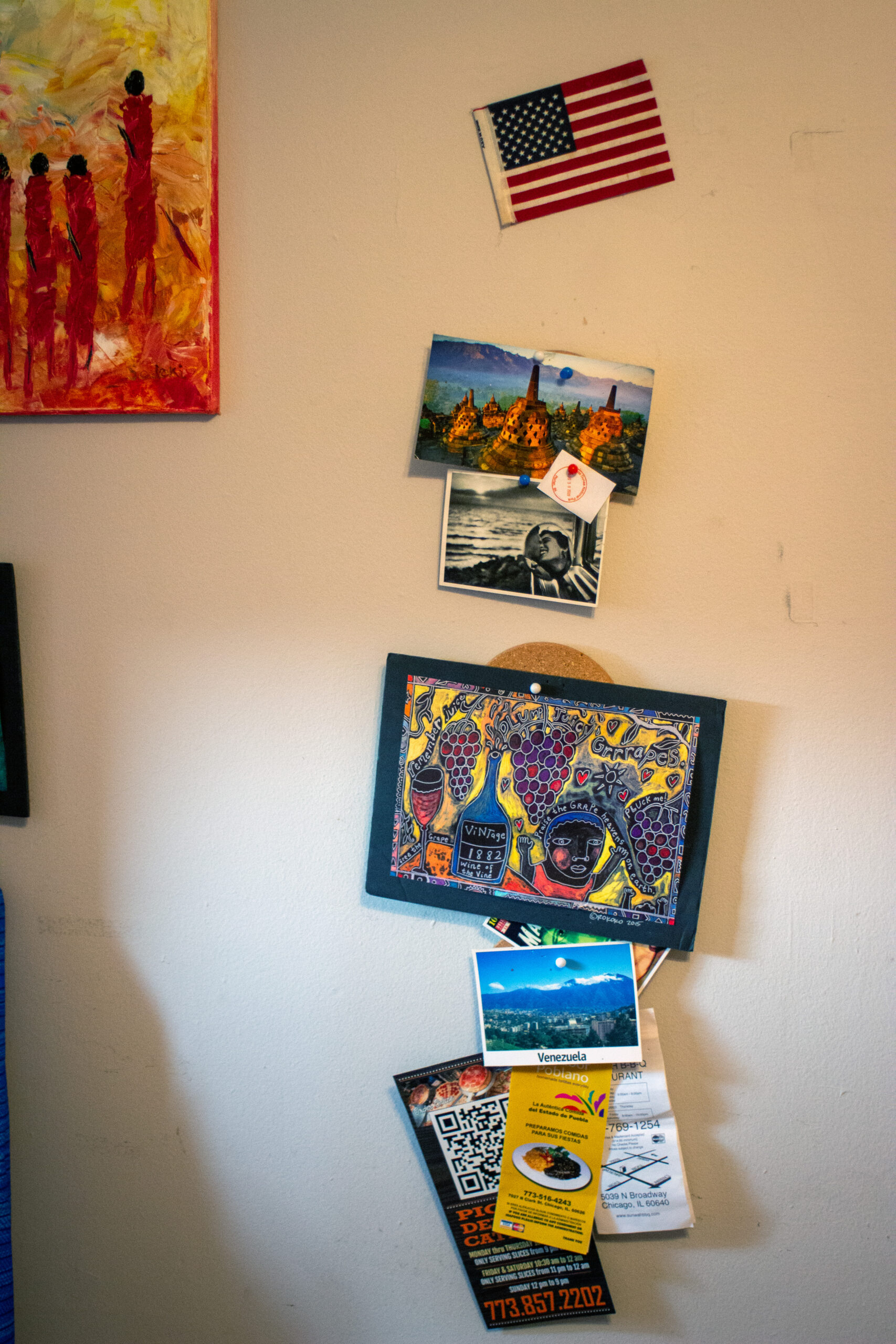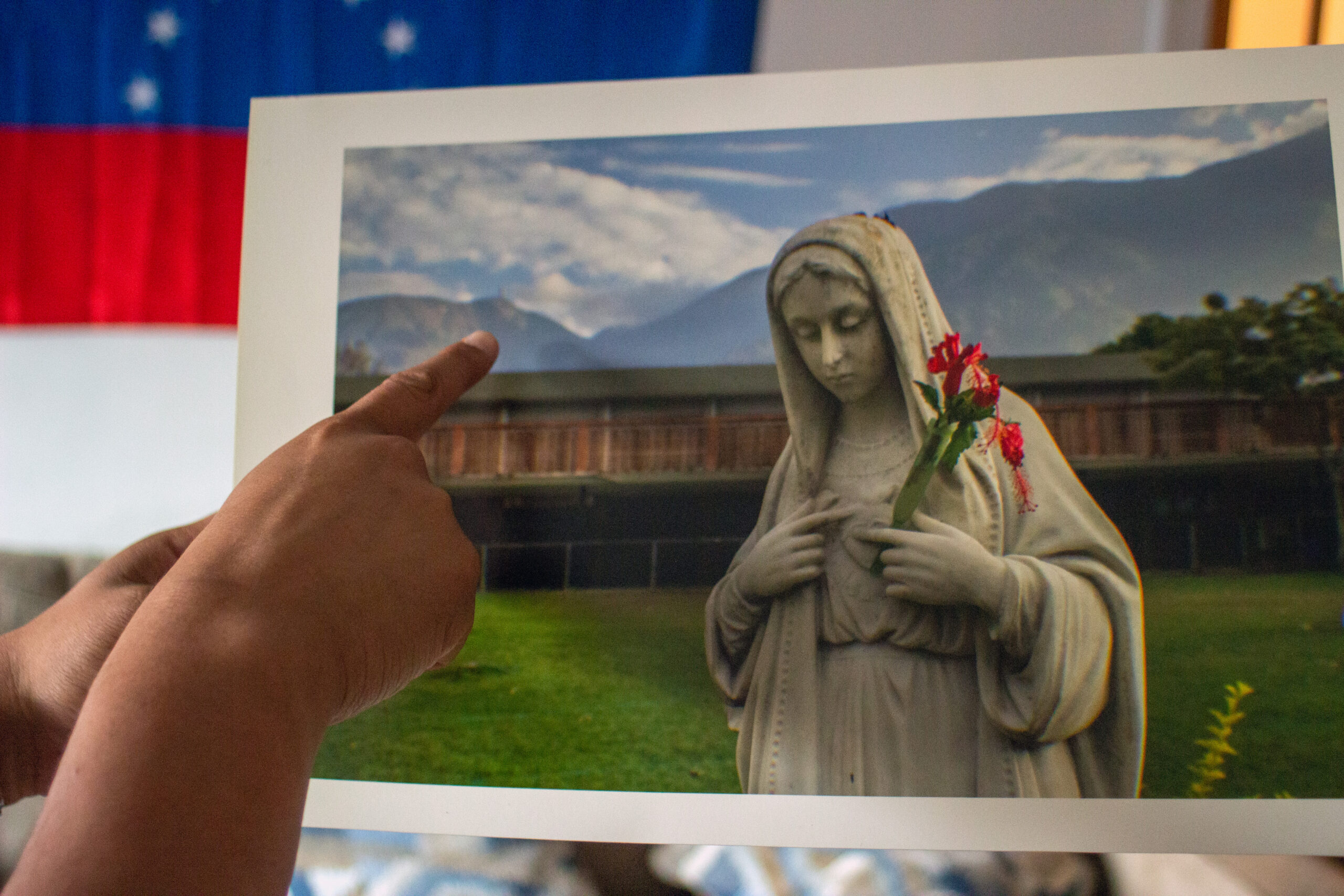
EEJOON CHOI / NEXTGENRADIO
What is the meaning of
Ryland Pietras speaks with Erwin Lopez Rada, a Venezuelan immigrant, who was forced to leave his country and make a new home in Chicago. Lopez Rada left Venezuela after threats of persecution because of his political activism. He now enjoys the opportunity to live and speak freely in Chicago – but at times he wonders if he will ever see the mountains of Caracas again.
From the mountains to Lake Michigan: A search for ‘peace’
From the mountains to Lake Michigan: A search for ‘peace’
Click here for audio transcript
It’s terrible to, to feel like you don’t belong in your own country. It’s terrible. It’s a terrible feeling, for I love my country. I am Erwin Lopez Rada.
You know, my my upbringing is poor. I’m not from a rich family. My father and my mother come from the slums of Caracas
I think I was one of the last generations that um…lived some of the good parts of my country, democracy in the sense that we had institutions.
But if you see the flag that I have in my living room, that flag is the Seven Stars flag. That was the country that ceased to exist in 1998 when Chavez changed the constitution to become more powerful.
My first adult years was fighting against the oppression of Chavismo which was terrible. Uh, people will notice because it was a soft oppression.
I discovered a relationship between like the president and uh, like a guy that was convicted of kidnapping, murdering and all this kind of thing.
This guy was like, you know, ‘you crossed the line. You crossed the line because this is directly against the president and your Twitter is getting traction.’ I got threats from like the main paramilitary group. The guys are terrible, are awful. They go after you. It’s not like here. They don’t come with clubs. They come with guns and they kill you.
Of course, I take it as a serious threat. But I was still like, brave, you know, like, ‘Ahh this is my country’ (laughs). Ahh, I was living with my sister and her children. I was like ‘Wow, this is too much.’
I felt relief when I get out, when I cross the border, but at the same time it was of the one of the saddest moments in my life. Because maybe I will never come back. I know. And well. And that forces you to, to reassess what means home, you know?
So, and we wanted to try a city with not too many, like people speaking Spanish. And then we moved here. And realized like, maybe two thirds of the city actually speaks Spanish (laughs). So it was a surprise. But it was, I think, uh, a nice surprise.
In my country I had an easy life with all the economic and political situations. In the sense that I went to a really good school. I went to the best university in my country, uhh and that landed me a really good job. So I didn’t ever have to work with my hands. I started to work with my hands here in America.
I survived my first winter here. It was 2014 Winter, which is was really cold. So it was minus 26 Celsius on Christmas Day. And I had never suffered that temperature in my life.
My coordinator, she comes and tell me like, ‘When you think that everything is difficult to make a stampita.’ A stampita is like um, a little paper that you keep in your, in your wallet. And you put from one side, the face of Chavez and the other side the face of Maduro. So when you feel that it’s too cold or it’s difficult, you look, you reach to your wallet, you get out your stampita and you look at it (laughs) and you put it back in your wallet and you just keep going.
I think here in Chicago you can be yourself.
This is the city that, you know, adopted me. I feel that…. I feel about Chicago, I feel like it’s my second home. It’s like what I call home here in America. Because I cannot, I cannot come back to my country. You know, maybe I will never come back. So I will say like my home is, Chicago.
This is the place that I know the most about. This is a place where I have, I have made good friends. Uhh this is a place that I did…that I had, gave me everything. And I know that people talk a lot of crap about Chicago, but it is the greatest city to live.
Eight years ago, Erwin Lopez Rada knew he had to leave his home country of Venezuela in search of a safer home for himself and his family.
He grew up in Caracas, Venezuela’s capital city, to parents of modest means. But he was able to attend the best high school and university in the country thanks to his parents’ lifelong hard work.
“I grew up in a family where they took me to the book fair instead of going to the movies,” said Lopez Rada. “So I read a lot. And that gave me a different perspective.”
That love of learning and education led him directly into his own classroom as a history teacher.
“The only thing that I want for my country is having a republic with a democracy,” said Lopez Rada. “That’s the only thing. That’s the only fight. I don’t care if the government is left leaning or right wing. I don’t care, as long as they preserve the institutions.”
While teaching, Lopez Rada also ran a political blog with a friend where they informed others of the corruption that was occurring in the country’s government. But speaking up came with major consequences.
For 20 years, Lopez Rada, his sister and her children, lived next door to a military lieutenant. One afternoon, he and the lieutenant got into an argument about Lopez Rada’s admiration of America.
The lieutenant said he cared about Lopez Rada’s safety, but would hate to see something happen to him or his family.
After all, he knew where they lived.
“I was like, wow, this is too much, you know, not my family,” said Lopez Rada.
After that interaction, he began taking steps to leave Venezuela. But because of his blog, Lopez Rada was on a government watch list, slowing down the passport process.
While he was waiting, he received more threats from paramilitary groups.
Lopez Rada felt pressure to leave Venezuela for good.

An ebullient Erwin Lopez Rada smiles in his Rogers Park apartment on June 19, 2023.
RYLAND PIETRAS / NEXTGENRADIO
LEFT: As a hobby, Lopez Rada enjoys photography. Snapshots of his grandmother, Emma, his mother, Raiza, and his dog Paco adorn his dining room wall. RIGHT: An illustration of Caracas – where Lopez Rada grew up – is hung prominently in his living room.
RYLAND PIETRAS / NEXTGENRADIO
On his last day in the only home he’d ever known, Lopez Rada looked at the mountains and realized he might never see them again.
Eight years later, as he sat in his Rogers Park apartment, his eyes pooled with tears at the memory.
“I felt relief when I got out, when I crossed the border,” said Lopez Rada. “But at the same time it was one of the saddest moments in my life. Because maybe I will never come back.”
He and his partner moved to Chicago in 2014, and faced a brutal winter – one of the coldest in the city’s history. Lopez Rada dealt with discrimination and didn’t have many people to confide in. He worked a number of odd jobs just to get by – like booting cars.
“I didn’t ever have to work with my hands. I started to work with my hands here in America,” he said.
In those early years, Lopez Rada met a man who told him that Chicago is the perfect place to start from scratch.
He began to reinvent himself by building a life and making friends.
He took ESL classes at Truman College in the city’s Uptown neighborhood, which also offered a pathway to a degree after completion of the ESL course. He started working for a non-profit agency that helps refugee children acclimate to the city – an experience he connected to.
“You can learn from me how to live here in a safe way,” Lopez Rada tells the children. “Unleash all the crap that you bring in from over there, then let’s process it here.”
His time in Chicago hasn’t always been easy, but Lopez Rada feels he can now openly express himself and have the opportunity to grow without fear of retribution.
Still, he sometimes longs for his first home, especially after a recent meeting with an older Cuban gentleman at church that reminded Lopez Rada of himself.
“He was about to die and he told me, ‘I know, I will never see the mountains in Santana de Cuba…I may die without watching my home again. But that’s okay’.” Lopez Rada said the man started to cry. “I saw myself in maybe 30 to 40 years from now, still longing for my country. I’ll never be able to see my mountains again.”
And although Lopez Rada has found a place in Chicago that he loves, thanks to the diversity of his neighborhood, the friendships he’s gained and the relaxing days at the beach, his plans for the future might take him elsewhere.
“I feel like Chicago is my home now,” said Lopez Rada. “But I think I won’t die here. I would like to die in a country where I can speak Spanish, I don’t have to worry about translation. I don’t have to worry about if I’m doing something that is culturally appropriate or not.” said Lopez Rada. “I just need to find that place of peace.”

Memorabilia from trips over the years hang below a small American flag. “I know that people talk a lot of crap about Chicago, but it is the greatest city to live,” said Lopez Rada.
RYLAND PIETRAS / NEXTGENRADIO

Lopez Rada shares a photograph he took of a statue of the Virgin Mary in the courtyard of the school in Caracas where he taught history until he left for the United States. Lopez Rada points to the mountains that he said he will always long for.
RYLAND PIETRAS / NEXTGENRADIO
